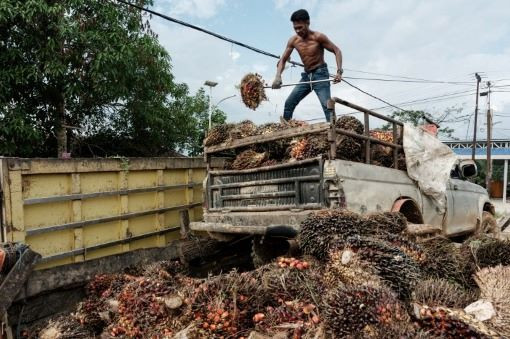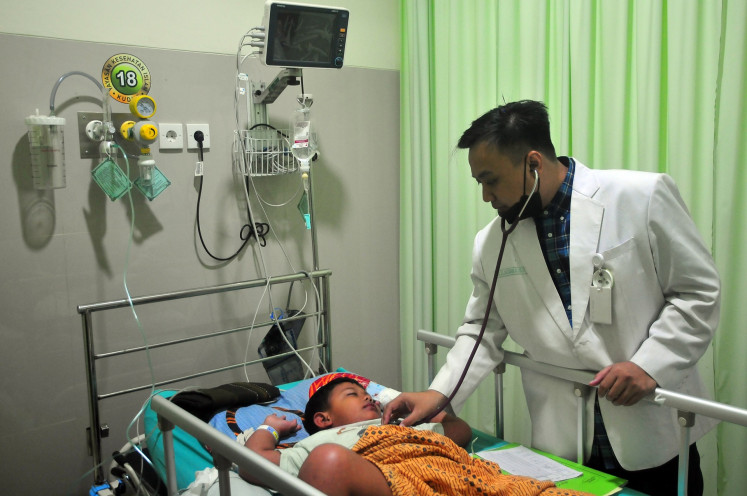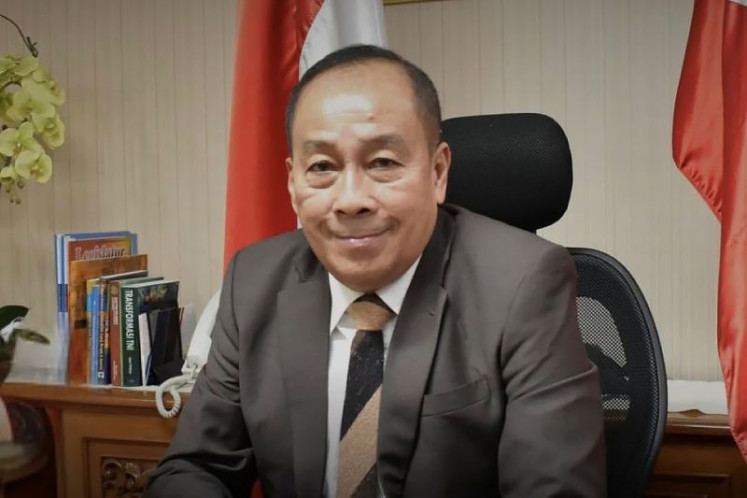Popular Reads
Top Results
Can't find what you're looking for?
View all search resultsPopular Reads
Top Results
Can't find what you're looking for?
View all search resultsAddressing gaps in Indonesia’s national commodity dashboard and EUDR
The traceability that the EU promotes will only be fair if it opens the supply chains within its 27 member states to the producing countries, such as Indonesia.
Change text size
Gift Premium Articles
to Anyone
T
he European Union's Deforestation-Free Regulation (EUDR) is in the preparation phase, prompting producer countries, including Indonesia, to enhance governance and anti-deforestation measures.
The government is developing the Indonesian National Commodity Dashboard, set to launch in September 2024, which will track palm oil, coffee, cocoa, rubber and timber through a blockchain-based platform. Critical terms for the dashboard include polygon, traceability and data confidentiality—although traceability and data confidentiality often conflict with one another.
The dashboard will utilize data from the Plantation Licensing Information System (SIPERIBUN) and the Integrated System for Electronic Cultivation Business Registration (e-STDB) alongside the 2020 Environment and Forestry Ministry forest cover map. A major issue is that the EUDR uses a cut-off date of Dec. 31, 2020, for deforestation-free status, but neither SIPERIBUN nor e-STDB incorporate a cut-off date, highlighting a discrepancy in the Indonesian dashboard system.
Additionally, Article 3 of the EUDR mandates legal commodity production. Yet many independent farmers lack land titles, with a small percentage having received e-STDB certification—1.07 percent for palm oil, 0.03 percent for rubber, 0.03 percent for coffee and 0.00 percent for cocoa, according to Agriculture Ministry data in July 2024.
Moreover, Indonesian civil society organizations (CSOs) have reported that over 3 million hectares of oil palm plantations have been illegally operated in forest areas. Until Indonesia resolves two fundamental issues in its efforts to comply with Article 3 of the EUDR, the dashboard will be an irrelevant initiative.
The EU may address deforestation by curbing the consumption of commodities linked to environmental harm. However, this approach could inadvertently lead to the segregation of commodities within producer countries, neglecting the core issues of cleaning up supply chains from deforestation, illegality and human rights violations.
The EUDR emphasizes due diligence through a narrow traceability perspective. While traceability is crucial for sustainable supply chain management, transparency is its backbone. The global value chain, if leveraged effectively, can drive environmental improvements. Transparency can reveal the complexities of global supply chains, often designed to obscure harmful practices and exploitation. By enhancing traceability, global public scrutiny can advance better production practices.


















